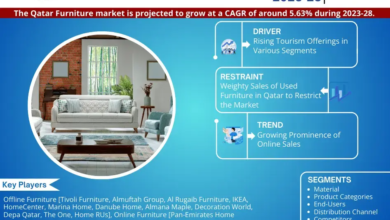
Did you know that logistics is the backbone of the global economy? Every day, billions of products are transported across the world, ensuring that businesses can meet the demands of their customers. However, traditional logistics tracking methods often come with their fair share of challenges. Delays, lack of visibility, lost or damaged goods, and frustrated customers are just a few pain points that plague the industry. That’s where real-time tracking comes in.
With advancements in technology, real-time tracking has emerged as a game-changer in the logistics industry. And Logos Logistics can help you harness its true power. That said, in this article, we will explore how real-time tracking works, its impact on businesses and customers, and why it is considered the future of logistics.
Traditional Logistics Tracking
Traditional logistics tracking methods have long been plagued by limitations. Delayed updates and an absence of visibility make it difficult for businesses to effectively manage their supply chains. As a result, lost or damaged goods, missed deliveries, and unsatisfied customers become all too common. These challenges not only impact your business’s bottom line but also affect customer satisfaction and brand reputation.
The Revolution of Real-Time Tracking
Real-time tracking technology has completely transformed the way logistics operations are managed. By utilizing advanced technologies like GPS (Global Positioning System), IoT (Internet of Things), RFID (Radio Frequency Identification), and WMS (Warehouse Management System), real-time tracking offers immediate updates on the location and condition of shipments. This increased visibility empowers businesses to proactively address any potential issues and ensure timely deliveries. Real-time tracking is not limited to any specific industry but has found applications in various sectors, including e-commerce, freight, and last-mile delivery.
In the e-commerce industry, for instance, real-time tracking allows customers to monitor their orders from the moment they are dispatched until they reach their doorsteps. This transparency fosters trust and enhances the overall customer experience. In the freight sector, real-time tracking enables logistics companies to optimize routes, minimize fuel consumption, and enhance efficiency. Last-mile delivery services can provide customers with accurate estimates of delivery times and real-time updates, thus, reducing delivery delays and boosting customer satisfaction.
The Impact of Real-Time Tracking
For Businesses
Using real-time tracking can really help businesses involved in order fulfillment and shipment. It helps them work more efficiently and save money. For example, they can know exactly where their shipments are, choose the best routes, use less fuel, and avoid wasting time. This not only cuts down costs but also helps the environment by reducing pollution from transport.
Real-time tracking also helps improve customer satisfaction. When businesses can tell customers exactly when their packages will arrive and keep them updated, it prevents delays and builds trust. Happy customers are likely to stick around and recommend the service to others.
Moreover, real-time tracking lets businesses use the data they collect to make smart decisions. They can spot trends, plan for vehicle maintenance before problems arise, and handle risks better. This means they can improve how they operate, have less unexpected downtime, and make plans based on solid information.
For Customers
Real-time tracking also has a significant impact on customers. It provides greater convenience and peace of mind by offering real-time delivery updates. Simple Global allows you to track your package from the store to the door, from literally thousands of online stores worldwide. Customers no longer have to wonder when their package will arrive; they can track its progress in real-time. This transparency builds trust and confidence in the logistics process.
Moreover, real-time tracking gives customers increased control and flexibility. In case of unexpected events or changes in their schedule, customers can reschedule deliveries and make adjustments to ensure a seamless experience. This level of control empowers customers and enhances their overall satisfaction.
And lastly, real-time tracking enables personalized experiences. Businesses can send custom delivery notifications, personalized status updates, and tailored recommendations based on customers’ preferences. This personalized approach makes customers feel valued and creates a positive brand image.
Addressing Concerns and Overcoming Obstacles
While real-time tracking offers numerous benefits, it is essential to address potential concerns and obstacles that businesses may face when implementing this technology. Privacy is a significant concern, as real-time tracking involves collecting and sharing location data. However, businesses can address privacy concerns by implementing robust data security measures and obtaining customer consent for data usage.
Cost is another consideration here. Implementing real-time tracking systems can be initially expensive. However, the long-term benefits, such as increased efficiency and customer satisfaction, outweigh the upfront costs. Businesses can also explore cost-effective options, such as leveraging existing infrastructure or partnering with logistics service providers that offer real-time tracking solutions.
Implementation challenges can also arise, especially for businesses with complex supply chains. However, businesses can overcome these challenges by adopting phased implementation strategies. Starting with a pilot project or focusing on specific areas of the supply chain allows businesses to gradually adapt to real-time tracking without disrupting their entire operations.
Real-time tracking is always getting better, and there are some really cool developments coming up. The future of tracking in real-time is going to be influenced by technologies like using Artificial Intelligence (AI), mixing different kinds of sensor data, and using smart predictions.
The Future of Real-Time Tracking
Advancements in real-time tracking continue to improve, with exciting developments on the horizon. The future of real-time tracking will be shaped by factors such as the integration of Artificial Intelligence (AI), the fusion of various sensor data, and the utilization of intelligent forecasting techniques.
By incorporating Artificial Intelligence (AI) into tracking systems, for instance, it becomes possible to analyze vast amounts of data and provide valuable insights. This enables smoother operations, improved route planning, and the ability to anticipate and address potential breakdowns before they occur, minimizing any disruptions in workflow.
Companies can gain a comprehensive view of the entire delivery process, by integrating data from various sensors. For instance, combining information from GPS, temperature monitors, and other sources can ensure that products remain in optimal condition from start to finish.
And with the use of predictive analytics, businesses can proactively identify and address potential issues before they manifest. By analyzing historical data and trends, companies can identify areas for improvement, mitigate risks, and enhance overall efficiency.
Conclusion
Real-time monitoring is a game-changer for the logistics industry, making operations much more efficient and streamlined. It helps businesses minimize costs and make their customers happier. Partnering with Logos Logistics and Simple Global lets you tap into this advanced technology, helping your business stand out in the fast-paced world of logistics.
Visit here for more informative article at Article Mia.



